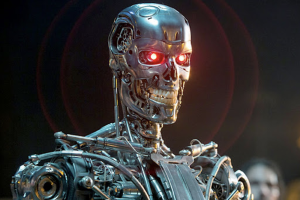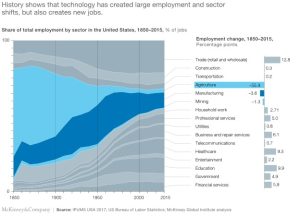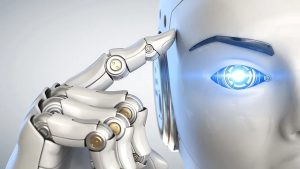Fear? AI is coming for your career, is there a different point of view
Anonymous | October 14, 2022
The robots are coming, and in just a few short years, everyone’s mundane job tasks will be taken by advancements in AI. Human-like intelligence required to do more complex tasks can now be given to AI.

However, the history of AI is automation, and that subject has proven such a declaration of doom a bit farse. Though many claim its negative downside without ever showing the whole truth, such as “a short history of jobs and automation” by the World Economic Forum. (WEF Sep 3, 2020). Over millennia’s past, humans have invented numerous solutions to problems, many of them of a static nature. They are easier to achieve automation in. However, we have never stopped working to achieve it with dynamic systems, and AI is just the latest success in this category of automation. I submit many exhibits of the past to this realization, and we can prove to ourselves that AI is here to replace less creative thinking jobs with ones more creative and intellectual, having more basis in human culture. This point of view is well expressed in the McKinsey & Company blog from Susan Lund and James Manyika (Mc Nov 29, 2017).
History of automata
In the ancient world of our ancestors, we had more advancements than many people today know. For instance, the Greek Hellenistic world created prototypes to demonstrate ideas on basic scientific principles. These demonstrations provided many mechanisms, hydraulics, pneumatics, and the programmable cart. The article from New Scientist on “The programmable robot of ancient Greece” by Noel Sharkey, describes this in deeper detail (NS, July 4, 2007). This programable cart was the first effort to mechanize something more dynamic in function. A mechanical-like beginning to AI. Further advancement to programmability took place around 150BCE with the Antikythera mechanism, which calculated the positions of astronomical objects. This was not a process humans thought could be done with mechanical devices. This is another more advanced mechanism made within ancient times, and the article by Smithsonian Magazine titled “Decoding the Antikythera Mechanism, the First Computer” by Jo Marchant, gives greater insight into this device (SM, Feb 2015). While these automata became feasibilities and demonstrations for many centuries, they still led to the replacement of human jobs with innovations from human creative endeavors that would be classifiable as divergent. Ultimately these devices replaced jobs as it took much more labor to produce the value outcomes by hand. However, these inventions opened new opportunities for jobs, such as university professors, inventors, researchers, and the like. Job’s that created devices like these to improve humanity’s daily lives, with less convergent work and allowing the greatness of the human mind to wander the immense open unknown, to explore!

Ethical implications
Seeing that automation brings the displacement of jobs from one skill set to another, there is an ethical implication for companies and cultures to consider. This notation is well articulated in MIT Sloan school of management’s article, “Ethics and automation: What to do when workers are displaced” by Tracy Mayor (MIT, July 8th, 2019). While companies can find new technologies quickly in automation, the labor force is not as quick to change and adapt. Thus, the advocation of companies having the upper hand in capital revenue generation at larger magnitudes suggests the opportunity to be responsible weights on the technology and adopting companies. So should companies pay the bill for change, or the workforce, perhaps a deeper discussion on fairness and sharing the responsibilities of society?

Conclusion
Today, we can see that the ML/AI revolution is repeating history, and humans are worried again about the incoming change. This time it will be cultural, legal, and ethical risks for business. The difference in our society will be more dramatic than ever before. Many economists suggest that a government jobs guarantee would help settle community uncertainty. Bill Gates has suggested that a robot tax would be helpful to offset job loss, making the robot a cheaper option while still providing the government revenue to support job guarantees. Perhaps the era of Star Trek is upon us, a utopian society where all the machines do the mundane of producing our needs and wants. While we focus on human culture and meaningfulness but is mundane meaningless? We can find more questions to unpack, but it is easy to see immediately that AI might just benefit us in future jobs!
